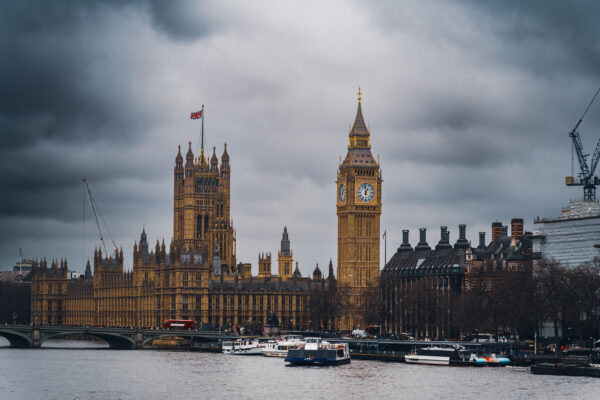

After months of speculation, Chancellor Rachel Reeves delivered her Autumn Budget on 26 November 2025. The Budget contained a raft of tax-raising measures, projected to raise £26bn for the Exchequer. Here, we summarise the key announcements relevant to our clients.
Income tax and National Insurance contributions (NICs)
- Personal tax thresholds will be frozen for another three years, until 5 April 2031. This includes the personal allowance and higher and additional rate thresholds, which remain at £12,570, £50,270 and £125,140 respectively. This is the biggest revenue raiser, expected to raise £7.8bn in 2029/30
- NIC reliefs on pension contributions made through salary sacrifice will be removed for contributions in excess of £2,000 per annum from April 2029. Both employee and employer NICs will apply to pension contributions above this level
- Income tax rates on property, savings and dividend income will increase by 2%
- From April 2026, dividend rates will increase by 2% on the basic and higher bands only
- From April 2027, property and savings rates will increase by 2% as follows:
- Basic – 22%
- Higher – 42%
- Additional – 47%
- Cash ISA allowance will reduce to £12,000 a year from 6 April 2027 for those aged under 65, down from £20,000. It will still be possible to invest £20,000 per year in ISAs, but the remaining £8,000 must be invested in stocks and shares.
Mansion tax
From April 2028, a High Value Council Tax Surcharge will apply to properties valued at £2m or more. The surcharge will start at £2,500 per annum and rise to £7,500 per annum for properties valued over £5m. The surcharge will rise in line with CPI. The values will initially be based on April 2026 property values, as determined by the Valuation Office. Valuations will be reviewed every five years.
Business and investment measures
- Venture Capital Trusts (VCT) and Enterprise Investment Scheme (EIS): from April 2026, asset and investment limits double; VCT income tax relief reduces from 30% to 20%
- Enterprise Management Incentives (EMI) share options: from April 2026, asset and employee limits rise, option limits double to £6m and exercise periods extend to 15 years (including existing arrangements)
- Employee Ownership Trusts: Capital Gains Tax (CGT) exemption on sales will be reduced from 100% to 50% with immediate effect. Holdover relief will still be available on the balance, deferring the chargeable element of the gain until a future disposal
- Stamp Duty Reserve Tax: transfers of shares in newly listed companies will be exempt for three years post-listing from November 2025
- Writing down allowances: changes will be made to certain writing down allowances, which provide tax relief on some business expenditure. This could bring more profits into a corporation tax charge
- Share reorganisations: legislation will be introduced in the Finance Bill 2025-26 that broadens the anti-avoidance provisions in respect of exemption from capital gains on share reorganisations and exchanges. The proposed changes, which have immediate effect, will expand the targeted anti-avoidance rules. Further detail is required on the focus of these provisions.
Inheritance tax (IHT)
- Previously announced changes to Agricultural Property Relief (APR) and Business Property Relief (BPR) remain largely unchanged, with each taxpayer still having only a £1m allowance of relieved assets qualifying for 100% relief. However, the £1m allowance will be transferrable between spouses. This is welcome news for many, aligning this measure with other IHT allowances
- From April 2026, UK agricultural property held by non-UK entities will be treated as UK situs for IHT purposes, bringing them within the UK IHT net for taxpayers who are not long term residents
- A £5m cap will apply to IHT relevant property trust charges on excluded property trusts set up before 30 October 2024. This is relevant to individuals who established trusts whilst they were non-UK domiciled under the rules that applied before 6 April 2025
- From April 2027, unused pension funds will be within the scope of IHT. This is not a new announcement, but further thought has been given to the administration of such a scheme. Personal representatives will be able to direct pension scheme administrators to withhold 50% of taxable benefits for up to 15 months and pay inheritance tax due in certain circumstances
- IHT thresholds will remain frozen at their current levels until April 2031. The current nil rate band allowance remains at £325,000 and the residence nil rate band allowance at £175,000 per taxpayer.
Other minor changes
- Temporary non-residents: from April 2026, taxpayers who are only temporarily non-resident will be subject to tax on their post-departure trading profits on their return to the UK
- Dividend tax-credits: from April 2026 non-resident taxpayers will no longer receive a notional basic rate tax credit on UK dividends. In practice, this is unlikely to result in additional tax being due as most non-residents will not be subject to UK Income Tax on dividend payments
- Protected cell companies: individual cells in PCCs will be treated as individual companies when assessing the cell’s exposure to CGT on UK real estate
- Soft drinks industry levy: from January 2028 the so-called “sugar tax” will apply to milk-based drinks in the same way that it currently does to other beverages. The rate of tax will also be increased in April 2026 at a rate above CPI
- Electric vehicles (EV) Road Tax: from April 2028, this self-reported tax, dubbed ‘eVED’, will see electric car drivers charged at a rate of 3p per mile, and plug-in hybrid (PHEV) drivers charged at 1.5p per mile.
What did not change
Given the various measures mooted by the government in the run-up to the Budget, it’s interesting to note the policies which have not changed:
- No changes were made to IHT rates and the rules around lifetime gifting, including gifts as normal expenditure out of surplus income
- No changes were made to CGT rates or the availability of CGT holdover
- Stamp Duty Land Tax rates remain as before
- Corporation tax remains at 25%
- No wealth tax or exit tax was introduced
- No changes were made to NIC contributions for members of LLPs.
As a result, and despite being the second significant tax-raising Budget delivered by this government, many will feel a sense of relief in the immediate aftermath.
This article provides a brief overview of the announcements. Further, more detailed analysis, will be presented in our Private Wealth magazine, Nexus, shortly.










